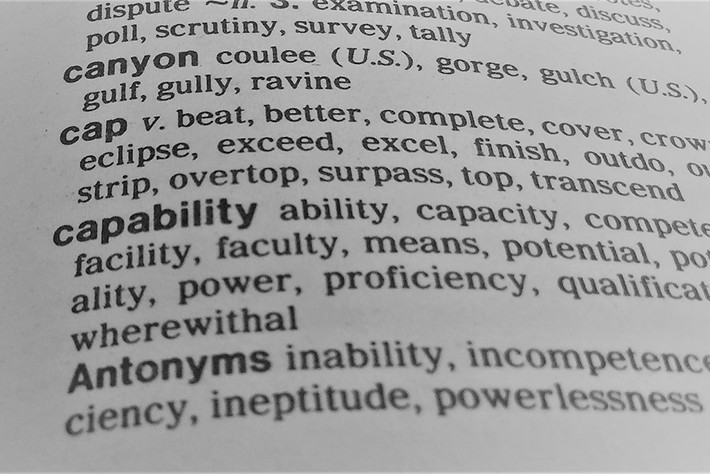“When you feel the urge to reach into someone’s chest, pull out their still beating heart, and jump up and down on their lifeless corpse, it’s rarely because of their lack of skill”.
So said my HR Director (!) when speaking about the difference between those who don’t have the capability to do what you need, and those who could do it, but just can’t be bothered. It’s an important distinction to make.
When it comes to business improvement, often it’s about addressing under-performance. In Business Transformation roles, it’s your job to take something that is not working as effectively as it should and make it sing.
As the manager of someone who is not delivering the results required, there are clear parallels to an underperforming business. And whilst there are any number of apparent reasons why a business’s or an individual’s performance isn’t up to standard, ultimately it comes down to the same two things:
Lack of will - where they could but won’t, and lack of skill - where they might not be capable, or just don’t know how.
Lack of skill can be addressed by imparting knowledge or new skills through training and coaching, and unless constrained by an organisation’s or person’s capability to learn (as opposed to willingness) can be quickly dealt with. However, lack of will is insidious - if allowed to prosper can poison the entire culture and is the most challenging to address in a turnaround. So don’t make the mistake of identifying one as the other, and allow a lack of will to poison the culture of your business.
Allowing an individual to get away with not being willing to do their job properly is essentially a failure of management, and its effect can spread quickly.
"Lack of Skill" can be addressed, but "Lack of Will" can be insidious
Imagine you have an employee who is constantly 10–15 minutes late back from lunch. Not once in a while (it can happen to anyone), but two, three, four times a week. The queue at the sandwich shop was long, they had to go to the post office etc, etc. Will or Skill?
Often this is will - the employee could get back to work on time but they choose not to. They could do their pack a lunch, choose a different sandwich shop or do their chores at another time and build in that buffer that ensures they arrive back on time. How long before your whole team becomes bitter with what they “get away with” and start to try and get away with stuff too?
So what do you do?
Set an improvement target? Maybe see if they can be a little less late back from lunch next week? Or maybe only late 2 days rather than 4?
No.
This isn’t about being a hard-ass. It’s just about having simple, basic standards and expectations. It isn’t about capability, it’s about discipline. This team member choosing to be late even one more time is damaging to team cohesion, and can’t be allowed to continue. So maintain those standards and tackle it early: they need to be clear that even one more lateness is unacceptable and if it continues the next step will be triggering the disciplinary procedure.
Of course this isn’t just about lateness - it’s about not hitting expectations.
If you make expectations for all roles clear, set standards and objectives and manage to them with regular feedback and reviews, not only will people know what is expected of them (which gives them half a chance of achieving it!), but those not engaging in the teams’ objectives will be obvious. You then need to crack on and deal with them quickly and decisively, but make these good practices part of your management DNA and you insulate your business from the risks and encourage those who are giving their best.
About our Guest Author:
Peter Tichbon is a Food and Drink industry Consultant and Interim Senior Manager, with over 15 years senior and board level experience in FMCG in a variety of functions from operations and logistics to sales, field sales, business transformation and General Management.



